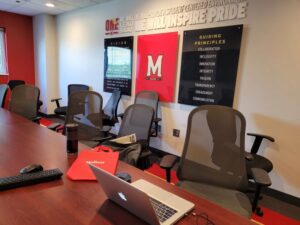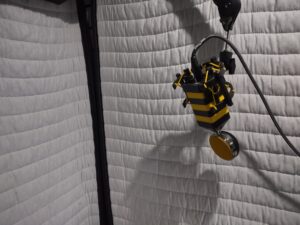

Gratitude Post.
Doing some work in between volleyball matches at The University of Maryland. I’m in a beautiful conference room, in the house that Gary Williams built recording voice overs and editing audiobooks. In a week I’ll be recording Coach William’s audiobook. In 2 hours I’ll be back on the mic for the Maryland Tournament vs Coastal Carolina. If you would have told me 30 years ago that I’d be doing any of this, while I was announcing lunch menus, at Springfield High School, doing carrier current AM radio at Towson University while cheering on the Terrapins on TV, or while editing Comcast Cable Guide listings, I would not have believed you. Has it been easy? Heck no. I’ve worked by butt off, and continue to each and every day, but sometimes, as my friend Dr. Robyne has taught me, it’s nice to reflect back with gratitude on how far you’ve come. Oh and did I mention Maryland now has Wawa? What a world.


